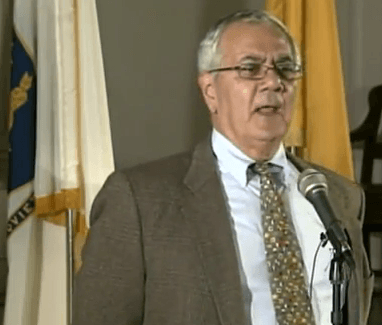U.S. Rep. Barney Frank announces he won’t seek re-election
U.S. Rep. Barney Frank announced he will retire, rather than face election in 2012. (Photo from CBS News video.)
Massachusetts’ Barney Frank, a 30-year-veteran of the U.S. House of Representatives and one of the first openly gay elected officials, announced Monday that he would retire, rather than seek re-election.
In redistricting, Frank’s district lost some of its most liberal areas and gained more conservative ones. Frank had intended to stand for re-election, but changed his mind.
“The need to campaign in a district that is almost half new…makes it harder, in terms of learning about new areas, introducing myself to new people,” he said.
But Frank said the decision wasn’t entirely based on his new district. He said there are other things he’d like to do before his life is over.
Frank became even more well-known with his work last year with Chris Dodd to introduce major overhauls to the U.S. financial system in 2010, leading to the Dodd-Frank Wall Street Reform and Consumer Protection Act.
Peter Canellos, Boston Globe editorial page editor, said he was surprised to hear that Frank had decided not to seek re-election.
“The word around town was he wanted to serve one more time,” he said. “While he had been concerned about some redistricting in his district, it didn’t seem like they were so great it would lead him to resign.”
Canellos said that spending the past year as a member of the minority probably hastened his thoughts of retiring. Frank has been targeted by national conservatives for many years and would likely face extensive competition.
“He probably thought, is he really going to put himself through a year of that just to serve one more term,” Canellos said.
As for Dodd-Frank, Canellos said it was a big step in reining in the excesses of the financial services industry, though elements will probably have to be revised.
Frank was also criticized for accepting campaign donations from mortgage giants Fannie Mae and Freddie Mac, and going easy on them while serving on an oversight committee.
In his retirement, Frank said he will write a book, something he says he’s always wanted to do.
Our coverage reaches millions each week, but only a small fraction of listeners contribute to sustain our program. We still need 224 more people to donate $100 or $10/monthly to unlock our $67,000 match. Will you help us get there today?
